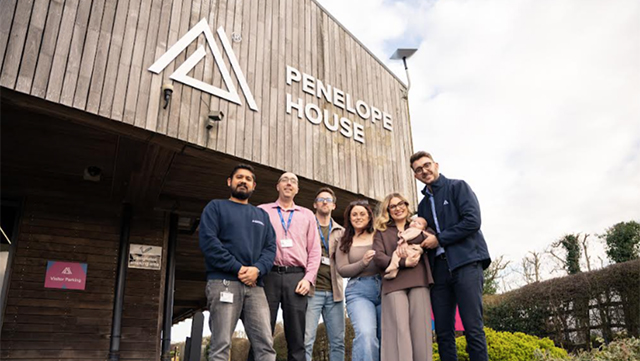COMMENT After a second volatile year due to the pandemic, institutional investment in Europe’s residential sector in 2022 is on the rise as landlords look to satisfy the demand for stable returns.
Single-family residential is an untapped asset class, where individual rental homes can be used to build diversified, low-risk portfolios. But in order to deliver this at speed and scale, harnessing data and technology isn’t just an idea, it’s a necessity.
In August, Halifax found that the UK housing market had hit new records of unaffordability, with salaries failing to maintain the rapid double-digit property price growth over the past year.
The report found cities in the UK have experienced a 10% rise in house prices. By comparison, in the past 12 months, wages in UK cities only increased by 2%, highlighting the inaccessibility of home ownership in the residential sector.
Worsening house affordability is a similar story emerging across Europe, and a cultural shift towards renting is inevitable. Consumers now choose to rent rather than buy in order to retain flexibility of where they live and spend their money.
Less than 2% of the transaction market is made up of residential assets typically accessible to institutions — existing and new-build multi-family homes. The remaining 98% has been impossible for institutions to access, as the traditional processes associated with aggregating and managing individual units at scale are too inefficient. Today, this is no longer the case.
A €40tn opportunity
The residential market in Europe is estimated to be worth €40tn (£34tn), offering a wealth of opportunity for those who can unlock it. At Immo Capital, we use artificial intelligence to identify and assemble bespoke SFR portfolios.
Within selected gateway cities we use technology to identify the best properties to match investor requirements. Machine learning can process more than 1m data points within five-by-five-mile zones, dynamically identifying pockets for investment and growth.
For example, in Germany, Cologne’s GDP and employment growth has steadily outperformed the German average. These are indicators that support a capital and rent growth opportunity, not only in the Cologne market – where rentals make up 72% of housing – but also in its associated commuter areas.
In the region between Cologne and Rhein-Erft-Kreis, the growing demand for rental properties has resulted in rental price growth of 12% over the past five years. During this period the average time to rent an apartment has fallen from 10 weeks to five weeks in Rhein-Erft-Kreis. In Cologne, it dropped from six to three weeks, further exemplifying the rapid uptake in rental homes.
Scoring assets
With population and disposable incomes forecast to grow over the next 10 years, demand and rental prices will continue to drive upwards, even in commuter regions.
To then identify the best areas within these regions, non-traditional data sources can also be examined. These include distances to local amenities and transport links, commute times to major employment hubs, the number and ratings of local schools or nurseries, proximity to green spaces, the evolution of local retail offerings and their review ratings, pollution levels, noise levels and more.
The result is that every individual asset has its own score to assess not only the rentability of the home today, but also its potential into the future.
In this way, technology is now capable of creating data-led investment strategies to identify and rapidly underwrite a large volume of individual assets, unlocking the possibility to source directly from consumer sellers efficiently.
By working with leading, tech-driven asset managers to establish SFR real estate portfolios from existing residential stock, investors no longer need to target only 2% of the market that is multi-family blocks. Coupling an end-to-end SFR platform with expert market intelligence provides investors with attractively priced, well-located residential portfolios that deliver stable financial returns within just weeks, as opposed to years.
Samantha Kempe is co-founder and chief investment officer at Immo Capital











